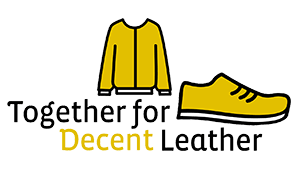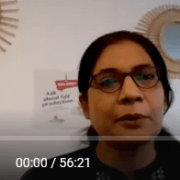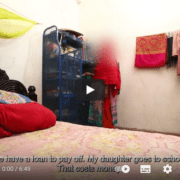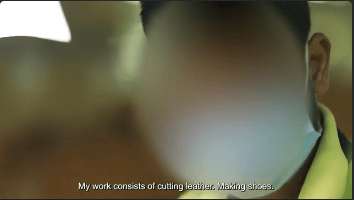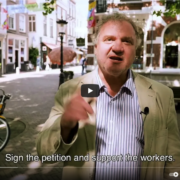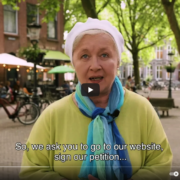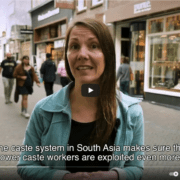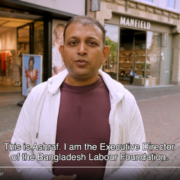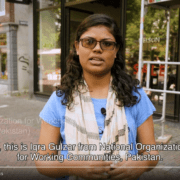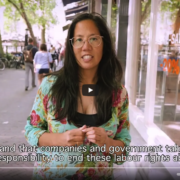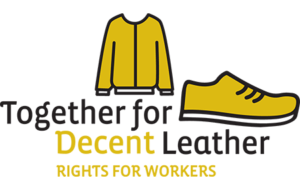OECD side session on “Working better in leather”
From 13 – 17 February 2023, The OECD organised a Forum on Due Diligence in the Garment and Footwear Sector. Arisa, on behalf of the consortium Together for Decent Leather, organised a (virtual) side session entitled “Working better in leather: stakeholder engagement and worker empowerment as key aspects of due diligence”. The session explored stakeholder engagement and empowerment of workers in the leather and leather products manufacturing industry in India, Pakistan, and Bangladesh.
Empower workers
While human rights due diligence laws are developing, research finds evidence of poor labour situations, including challenges for unionisation, regularly accompanied by a shrinking civic space. Challenges to worker’s rights in the leather sector in Bangladesh, India and Pakistan persist. Ashraf Uddin Mukit, executive director at Bangladesh Labour Foundation (BLF), and Farhat Parveen, executive director at NOW Communities (Pakistan), stressed during the side session that national and international stakeholders in the leather supply chain must collaborate with organisations on the ground such as BLF and NOW Communities. Organisations like theirs are in direct contact with the workers and have first-hand knowledge on the situations of workers. They empower and support workers by engaging in regular contact, trust-building, and training.
To improve their due diligence processes, companies should amongst others look into- and understand the full scope of the labour force at all stages of their supply chain, must speak and work with a range of CSO, be proactive in stakeholder engagement and companies should not wait until problems manifest to engage in dialogue to improve their due diligence, be transparent on their sourcing, source from unionised suppliers and factories, and apply fair pricing- and purchasing practices which enable suppliers to pay fair wages.
Improving due diligence
Elmie van Hoof, Sustainability Manager at Goosecraft (the Netherlands), acknowledged that due diligence topics are often complex for companies. According to her, companies are still learning they can benefit from discussions with various stakeholders. These discussions help to gain a better understanding of the realities of sourcing countries, which is essential for improving due diligence processes. According to Goosecraft, stakeholder engagement also helps to build stronger, sustainable relations with stakeholders.
There are multiple ways in which Goosecraft engages with stakeholders in relation to its due diligence practices. The company engages in meetings with stakeholders to gain information on on-the-ground situations. A good example of this is the meeting and continuous collaboration with NOW Communities, SOMO and Arisa. Based on these organisations’ research findings and long-term knowledge and experience of the situation on the ground, all stakeholders involved discuss labour conditions and the possibilities of change.
Meaningful dialogue
Jules Beelen, a representative of the Social and Economic Council of the Netherlands (SER), emphasised that the preparation phase of stakeholder dialogue is important to set it up more thoughtfully and be more effective. Their concept guidelines for companies to conduct and achieve meaningful dialogue with their stakeholders helps stakeholders collaboratively bring to light information, challenges, roles, ideas and necessary actions relevant for improving due diligence processes. The SER identified three preconditions to make collaboration work, namely that parties are able to provide a relevant contribution and are willing to cooperate, willing to invest time and resources to build up a collaborative relationship based on equality, and that the roles, tasks and expectations among the various parties are clearly agreed upon. The SER developed a concept of meaningful dialogue that provides information on how companies can engage with their stakeholders in a meaningful way. Download the document here.
